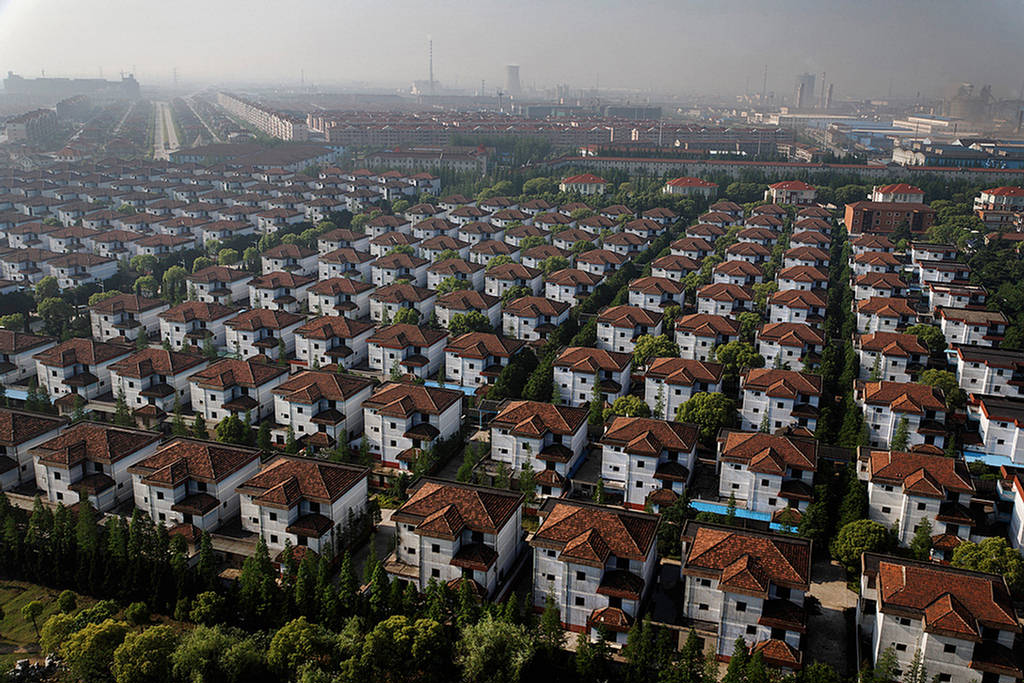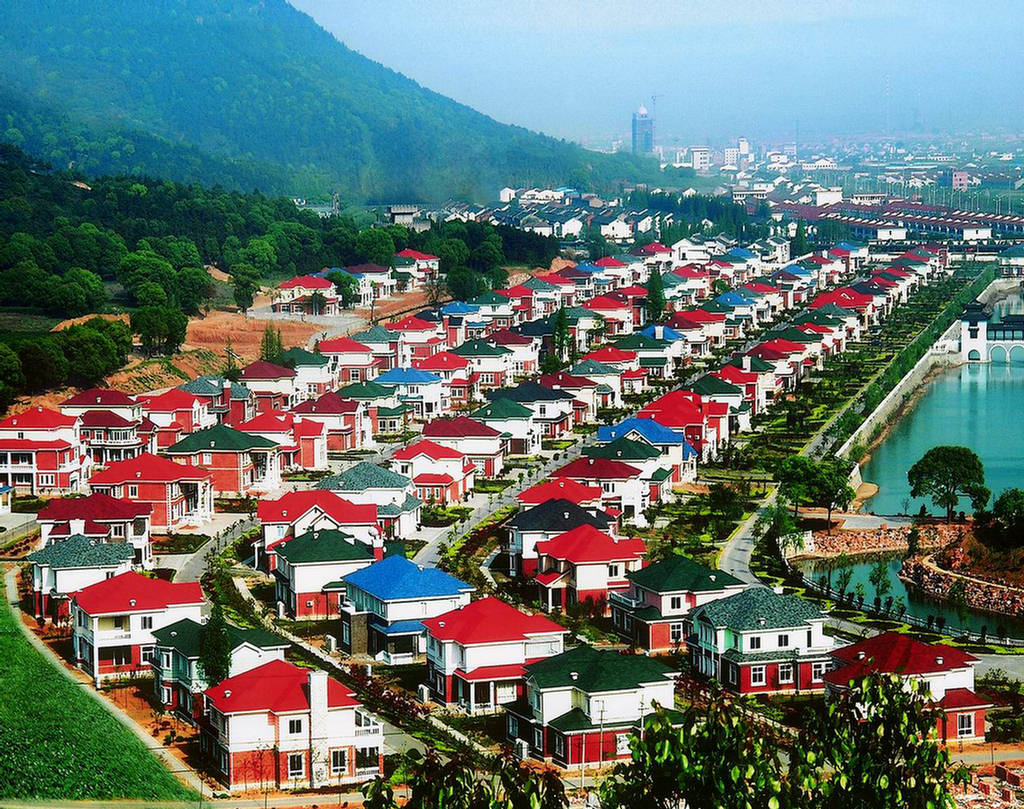Huaxi Village is China’s richest village, where everyone has more than $100,000 in their bank accounts and works seven days per week.

Founded in 1961 by Wu Renbao, Huaxi touts itself as a model of Chinese communism. The citizens enjoy a high quality of life, most having well over $100,000 in their bank accounts, living in mansions, and driving expensive European cars. The founder operates on the belief that the key to happiness is having money, cars, a house, and a family. The villagers have stakes in the profits of the village, too, and so they get richer every year. In exchange, the numerous fabrication plants operate nonstop, with employees working seven days per week and don’t get vacations.
Renbao also recognised the yearning many have to see the rest of the world. But how does one travel the world while being required to work seven days per week? By visiting the World Park, of course! There are replicas of the Sydney Opera House, a section of the Great Wall, the Arc de Triomphe, and even a sad copycat Statue of Liberty that sits atop an equally sad-looking White House.

Sound too good to be true? There are reports that it is. Not only do the wealthy villagers lose everything (money, house, cars) if they ever leave, but the true villagers are the only ones who receive the wealth – the migrant workers who make up a substantial part of the working population are paid regular wages and don’t benefit from the free healthcare and financial perks that the others receive. According to one report, the migrants make up almost 95% of the population, with the original villagers from the 1960’s (and their descendants) being the only ones who get a piece of the pie.
Huaxi claim that everyone in the village is wealth is propaganda aimed at promoting Chinese socialism. Their tight control of the domestic media and forbidding locals to talk to foreign press have kept the true horrors of this Orwellian community under wraps. With communist songs blaring from loudspeakers in the streets and banners praising the great Renbao, it’s like some kind of wealthy version of North Korea.
Yet despite the apparent inequality, tourism is strong in Huaxi, as many are curious about what life in this Communist utopia is like. Visitors remark, though, that the fancy shops and restaurants one would expect in a wealthy city are mostly nonexistent, leaving one to wonder what the point is in having money that can’t be spent.

